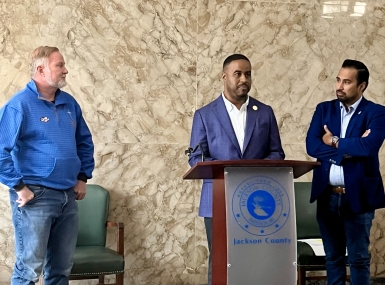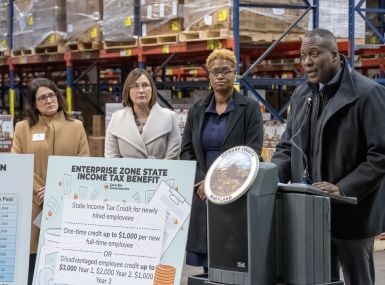Don’t Confuse Effort with Progress or Output with Outcomes
Author

Tim Rahschulte, Ph.D.
Upcoming Events
Related News

How often do you greet people throughout the day and ask, “How’s it going?” or “What are you working on?” Probably a lot. How often do you get an immediate response such as, “Wow, there’s a lot going on,” or “We’re really busy working on a lot of things today?” Is the response one of effort or progress? It’s easy to be busy and it’s good to be busy. Output is important. But it’s far better to make progress on a major outcome. So yes, busy is good, but productive is much better. Effective leaders ensure their team is producing outcomes and not mired in busywork.
Effectiveness and success are about progress, not effort. They’re about outcome, not output. Now some people view output and outcome as mere semantics, and that’s unfortunate — the differences are much more profound than semantics alone. An outcome is something your customers, clients and employees can actually see and experience. These are results, and they serve as a measure of performance — not just effort, but performance. Anyone or any team of people in your company may very well be busy working on a number of things, but that busyness doesn’t assure an effective outcome. It’s for this reason that the best leaders focus on outcomes rather than outputs.
Bob Behn, a lecturer at Harvard’s John F. Kennedy School of Government, said “The only thing that counts is an outcome. The only thing worth counting is an outcome.” Agreed! In a time of gross self-aggrandizing efforts, busyness and a wide sense of self-entitlement, our reality is that no one really cares how hard you work. You’re expected to work hard, but working hard doesn’t guarantee your success. Outcome trumps output, accomplishment trumps effort, value actions trump value statements and results trump any level of intent.
Let’s think about output versus outcome through the lens of products for a moment. There’s no arguing that McDonald’s has sold a lot of hamburgers over the years. It’s been calculated (and posted in marketplace.org) that they sell about 75 burgers every second. That’s well over two billion burgers sold in a year. According to the NPD Group’s food-service market research, there are about nine billion burgers sold and consumed every year. So, while McDonald’s sells the most by far, consumers do have options. Besides McDonald’s, we can buy burgers from In-N-Out Burger, Five Guys, Shake Shack and Red Robin, to name a few. But let’s get back to outputs versus outcomes.
Selling more burgers is an output, not an outcome. Shake Shack doesn’t want to be compared to McDonald’s, and while they may be happy with selling more burgers, they’re focused on something even more important to them: the consumer’s experience. Their desired outcome is a positive customer experience and they believe that outcome occurs from using better ingredients, providing better service and perhaps offering a better environment. Certainly, you’ll pay for that difference. Shake Shack burgers are more expensive than a burger at McDonald’s. You can buy a hamburger from McDonald’s for about a dollar. It’ll cost at least three times that amount at the other restaurants mentioned. But what are they creating? What’s the outcome? It’s not about the number of burgers sold but rather the customer’s experience.
Outcome isn’t about making or selling more stuff. That’s output. Outcome is the impact you have on customers. It’s much more aligned with the vision of the future state. It’s the reason Maserati isn’t focused on catching Volkswagen to be the number one seller of automobiles. Maserati isn’t focused on that output. Rather, their vision and focus are on creating the best user experience for their buyers, drivers of high-performance automobiles.
This experience isn’t just limited to consumers. It’s applicable to employees as well. Think about the outcomes you’re aiming to provide your customers. The only way they’ll experience what you have envisioned is through interaction with your employees — the products and services they provide. With that in mind, what interactions do you have with your employees? What experiences are you providing them? What outcomes do you want your employees to have so that, in turn, they’ll create the outcomes you have planned for your customers?
All of your actions matter because you’re always influencing those around you. You’re either enabling those around you to be great or inhibiting them from being so. If you’re intentionally creating experiences for your employees to be great and do great work, that’ll lead to higher levels of engagement and customer service from them, which will lead to better outcomes all around.
As a parting note here, it is understood that outputs are important for managers within organizations. They’ll likely always be measured. The importance of this rule, however, is that while outputs may provide some perspective about the busyness of your business, don’t allow the focus on outputs to blind you to the importance of your outcomes. The best leaders align outcomes to their vision and understand (and measure) the outcomes they intend to realize among their team, across the enterprise, with their products and services, and with their customers and clients.

Attachments
Related News

Jackson County chair combines diverse experiences for effective leadership
A fellowship funded by the Congressional Black Caucus kick-started DaRon McGee’s career in public service, but his promise to his mother brought him back to Jackson County, Mo., where he's made his name.

Accepting criticism can help improve results, Howard County executive says
Calvin Ball recognizes that any election results show elected officials probably don’t have universal approval, and winning over critics can lead to better overall communication with all residents.